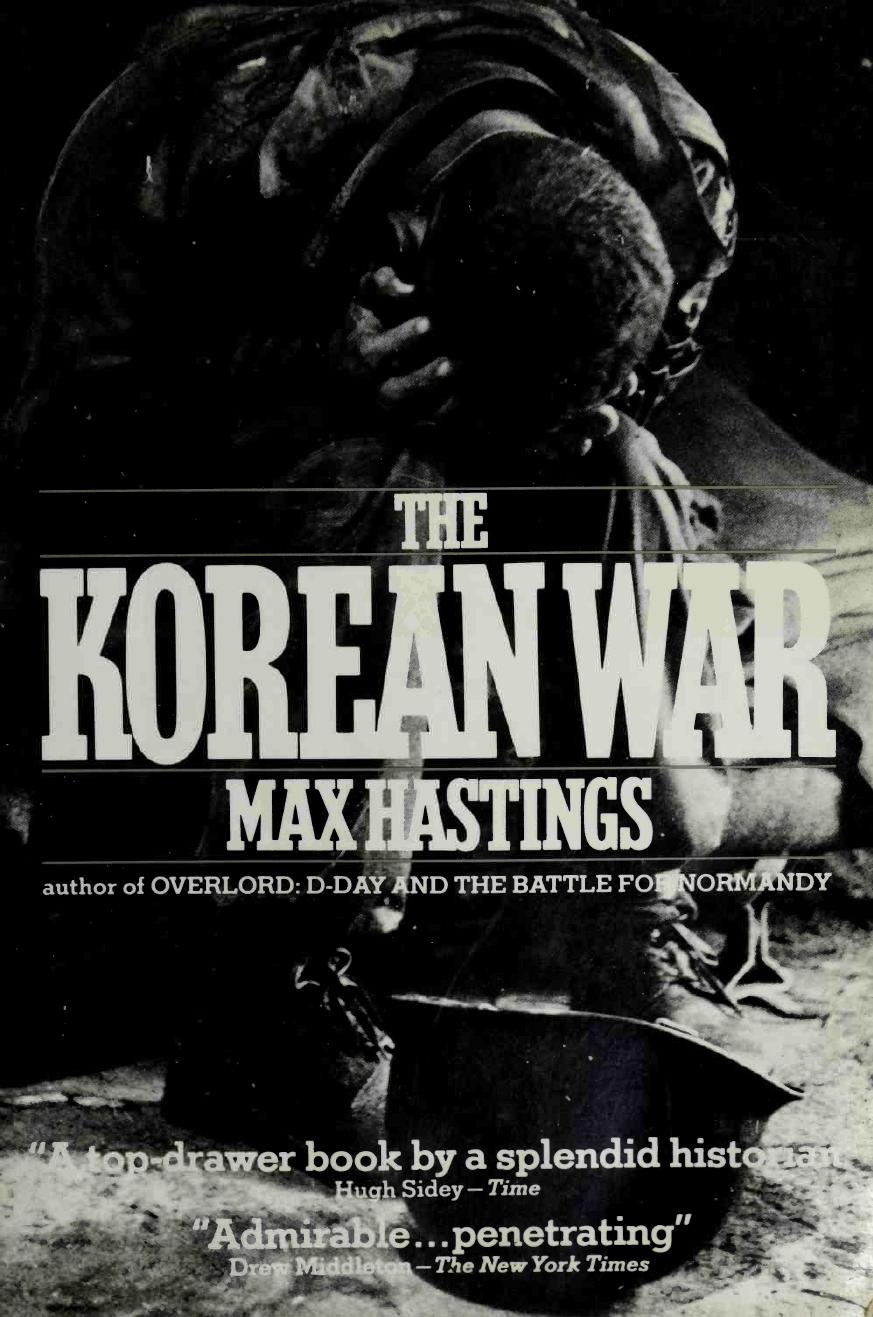The Korean War by Max Hastings

Author:Max Hastings [Hastings, Max]
Language: eng
Format: epub, mobi, pdf
Tags: eBook, Korea
ISBN: 9780330392884
Google: rTCESpkgQEEC
Amazon: 067166834X
Publisher: Pan Books
Published: 2000-01-01T05:00:00+00:00
On 27 March, another landmark was passed when the first UN troops – ROK I Corps – once more crossed the 38th Parallel. They took the town of Yangyang four days later. The Americans kept pace with them, driving north from Uijongbu. But this time, there was to be no headlong race for the Yalu. Ridgway’s objective was merely to reach the ‘Iron Triangle’, south of Pyongyang, the heart of the communist supply and communications network. By 9 April, the UN armies had reached the KANSAS line. Here, with their positions anchored upon the barriers of the Imjin river in the west and the Hwachon reservoir in the centre, they could pause and gather breath before embarking upon the next phase. The line from coast to coast had shortened to just 115 miles. In the days that followed, I and IX pushed forward a few miles further, and a new advance to the WYOMING line was being planned. ‘We now had a tested, tough, and highly confident army,’ wrote Ridgway, ‘experienced in this sort of fighting, inured to the vicissitudes of the weather, and possessed of firepower far exceeding anything we had been able to use on the enemy heretofore. The only development that could possibly cause us to withdraw from the peninsula was, I felt sure, massive intervention by the Soviets. In the spring of 1951, such intervention was not altogether an impossibility.’6
But the next move belonged not to Moscow, or Eighth Army, but to Peking and Washington: Peking, where a massive spring offensive by nineteen Chinese armies was being prepared, in an attempt to undo all that Ridgway had accomplished in his astonishing four months in Korea; and Washington, where patience had at last expired with the dangerous military majesty of the Dai Ichi.
President Truman’s dismissal of General Douglas MacArthur has been the subject of millions of words of narrative and analysis. It is unlikely that any important new evidence will emerge to alter historical perceptions of events in Washington and Tokyo in the spring of 1951. In a primarily military study of the war in Korea, it is redundant to rehearse once again much familiar detail. Here, it is relevant only to summarise the arguments and the events that culminated in the Great Fall of 11 April.
Ten months of crisis in Korea had exercised a powerful influence upon the domestic politics of the United States. They had witnessed the growing ascendancy of the right wing of the Republican party, convinced that the United States faced a co-ordinated external and internal communist conspiracy, of which North Korean aggression was merely one manifestation. Republicans found it intolerable to behold the spectacle of United States military power lurching ineffectually to maintain a tenuous grip in Korea against the communist hordes. If their opposition to deep entanglement in European alliances was founded upon a dislike of the restraint that European liberals thereby sought to impose upon American foreign policy, their enthusiasm for a ‘forward policy’ in the Pacific and the Far
Download
The Korean War by Max Hastings.mobi
The Korean War by Max Hastings.pdf
This site does not store any files on its server. We only index and link to content provided by other sites. Please contact the content providers to delete copyright contents if any and email us, we'll remove relevant links or contents immediately.
| Canada | Caribbean & West Indies |
| Central America | Greenland |
| Mexico | Native American |
| South America | United States |
Cat's cradle by Kurt Vonnegut(15351)
Pimp by Iceberg Slim(14506)
4 3 2 1: A Novel by Paul Auster(12390)
Underground: A Human History of the Worlds Beneath Our Feet by Will Hunt(12097)
The Radium Girls by Kate Moore(12026)
Wiseguy by Nicholas Pileggi(5782)
The Fire Next Time by James Baldwin(5440)
Perfect Rhythm by Jae(5402)
American History Stories, Volume III (Yesterday's Classics) by Pratt Mara L(5307)
Paper Towns by Green John(5188)
Pale Blue Dot by Carl Sagan(5007)
A Higher Loyalty: Truth, Lies, and Leadership by James Comey(4959)
The Mayflower and the Pilgrims' New World by Nathaniel Philbrick(4502)
The Doomsday Machine by Daniel Ellsberg(4489)
Killers of the Flower Moon: The Osage Murders and the Birth of the FBI by David Grann(4447)
The Sympathizer by Viet Thanh Nguyen(4390)
Too Much and Not the Mood by Durga Chew-Bose(4345)
The Borden Murders by Sarah Miller(4324)
Sticky Fingers by Joe Hagan(4197)
